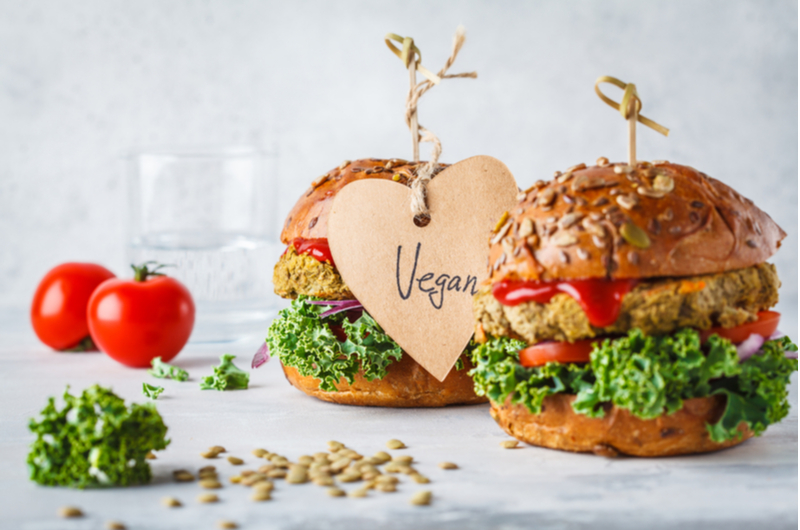A vegan is a person who does not eat or use any animal products. This meaning in one’s diet they do not eat meat, eggs, dairy or any other products that originate from an animal. They also do not purchase any products that contain anything originating from an animal, such as leather, down feather products and any other products of animal origin.

Veganism has become increasingly popular today, in large part due to the Netflix documentary “What The Health”. That documentary is dedicated to exposing the truths behind the meat industry and large foundations that fund the Government and in turn, the Government promotes how healthy their products are. Of course there are two sides to every story, so anyone to watch this documentary will be exposed to one side of the story. However, there are more and more studies being done today that are helping prove Veganism is indeed a healthier dietary option for many.
What To Eat?
If you are deciding to become vegan, there are two types of vegans…the healthy vegan and the unhealthy vegan. The healthy vegan is one who eats a plant-based diet, which typically that means you stick to shopping only on the outside isles of the grocery store. That does not include processed foods. The unhealthy vegan will be eating a lot of processed foods that are not of animal origin. Obviously the healthy vegan will see positive results from their diet vs the unhealthy Vegan.
What Not To Eat?
- Meat and poultry: Beef, lamb, pork, veal, horse, organ meat, wild meat, chicken, turkey, goose, duck, quail, etc.
- Fish and seafood: All types of fish, anchovies, shrimp, squid, scallops, calamari, mussels, crab, lobster, etc.
- Dairy: Milk, yogurt, cheese, butter, cream, ice cream, etc.
- Eggs: From chickens, quails, ostriches, fish, etc.
- Bee products: Honey, bee pollen, royal jelly, etc.
- Animal-based ingredients: Whey, casein, lactose, egg white albumen, gelatin, cochineal or carmine, isinglass, shellac, L-cysteine, animal-derived vitamin D3 and fish-derived omega-3 fatty acids.
Vegan Diet Guide
One of the main things a vegan has to keep in mind is getting the right balance of nutrition from the foods they are allowed to eat. The toughest one that everyone thinks is the hardest to get is protein. Many think that protein only comes from animals. That could not be farther from the truth. In most cases, beans, lentils and legumes have as much protein in them as meat. Here is a simple guide as to what you can eat and the nutritional value of each…
1. Beans, Lentils and Legumes
These are all a great source of protein. Beans are one of the most common protein-rich foods for vegans and vegetarians and are great for your budget. One cup of kidney beans contains about 13.4 grams of protein. And they can be found in just about any grocery or convenience store.
2. Tofu and Soy Products
These are very common products among the vegan and vegetarian community. They are rich in protein and they are a great source of calcium, iron and vitamin B12. Soy milk is also a great alternative for milk.
3. Nuts and Nut Butters
Nuts are a great source of iron, fiber, magnesium, zinc, selenium and vitamin E. They are rich with nutrients and are quick and easy snacks. Nut butters without the fatty oils are great as well.
4. Whole Grains
These are a great source of several nutrients such as fiber, iron, B-vitamins and several minerals. They are also a great source of complex carbs. Quinoa, teff, spelt and amaranth are also high in protein.
5. Fruits and Vegetables
Both are great options for Vegans and should be included in just about every meal. Vegans typically increase their intake of fruits and vegetables when they decide to give up animal-based products. The leafy green vegetables are especially loaded with nutrients; spinach, kale, bok choy, mustard greens, watercress; these are all very high in iron and calcium.
If you decide to go vegan, the best option for you is to become the healthy vegan, also known as the whole-food vegan. This is a diet based on a wide variety of whole plant foods such as fruits, vegetables, whole grains, legumes, nuts and seeds. Simply follow the guidelines of what to eat and you should see immediate results, as well as helping the environment and the decrease in animal product productions.